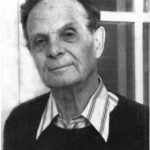 Above all, by dramatizing the violent and destructive process by which these archaic societies are transformed by and incorporated into the modern world, these four novelists (Hardy, Conrad, Achebe, and Llosa) testify to the havoc wreaked upon individual human lives in the name of progress. The novelists I discuss are all citizens and beneficiaries of the modern world, but they nonetheless fell compelled to record for posterity the great costs, paid in blood and pain, the peoples around the world have rendered to settle accounts with history.
Above all, by dramatizing the violent and destructive process by which these archaic societies are transformed by and incorporated into the modern world, these four novelists (Hardy, Conrad, Achebe, and Llosa) testify to the havoc wreaked upon individual human lives in the name of progress. The novelists I discuss are all citizens and beneficiaries of the modern world, but they nonetheless fell compelled to record for posterity the great costs, paid in blood and pain, the peoples around the world have rendered to settle accounts with history.
Michael Valdez Moses, The Novel and the Globalization of Culture
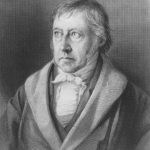 But in India, it [despotism] is normal: for here there is no sense of personal independence with which a state of despotism could be compared, and which would raise revolt in the soul; nothing approaching even a resentful protest against it, is left, except the corporeal smart, and the pain of being deprived of absolute necessaries and of pleasure. In the case of such a people, therefore, that which we call history is not to be looked for. … This [Hinduism] makes them incapable of writing history; all that happens is dissipated in their minds into confused dreams.
But in India, it [despotism] is normal: for here there is no sense of personal independence with which a state of despotism could be compared, and which would raise revolt in the soul; nothing approaching even a resentful protest against it, is left, except the corporeal smart, and the pain of being deprived of absolute necessaries and of pleasure. In the case of such a people, therefore, that which we call history is not to be looked for. … This [Hinduism] makes them incapable of writing history; all that happens is dissipated in their minds into confused dreams.
Georg Wilhelm Frederick Hegel, The Philosophy of History
Psychoanalysis can provide a theory of “progress”, but only by viewing history as a neurosis.
Norman O Brown, Life against Death: the Psychoanalytical Meaning of History
 Our cultural crisis, for perhaps the first time in history, is the same as the crisis of our species. …It is not Western culture that is in danger of being destroyed tomorrow, as the cultures of the Greeks and the Arabs, the Aztecs and the Egyptians were destroyed in the past: it is man himself. The old plurality of cultures, postulating various and contrary ideals, and offering various and contrary views of future, has been replaced by a single civilization and a single future, and a verification of the radical heterogeneity of every society and archetype. …All of today’s civilizations derive from that of the Western world, which has assimilated or crushed its rivals. …World history has become everyone’s task, and our own labyrinth of all mankind.
Our cultural crisis, for perhaps the first time in history, is the same as the crisis of our species. …It is not Western culture that is in danger of being destroyed tomorrow, as the cultures of the Greeks and the Arabs, the Aztecs and the Egyptians were destroyed in the past: it is man himself. The old plurality of cultures, postulating various and contrary ideals, and offering various and contrary views of future, has been replaced by a single civilization and a single future, and a verification of the radical heterogeneity of every society and archetype. …All of today’s civilizations derive from that of the Western world, which has assimilated or crushed its rivals. …World history has become everyone’s task, and our own labyrinth of all mankind.
Octavio Paz, The Labyrinth of Solitude
 Arthur Miller, while commenting on a screenplay by Ken Kesey, said that it revealed the American faith in the infinite possibility of growth for the individual person, and that its theme was a quintessentially American belief [that] “despair is still for us a kind of frontier to be crossed when in other places [in the world] it is a permanent condition of life.”
Arthur Miller, while commenting on a screenplay by Ken Kesey, said that it revealed the American faith in the infinite possibility of growth for the individual person, and that its theme was a quintessentially American belief [that] “despair is still for us a kind of frontier to be crossed when in other places [in the world] it is a permanent condition of life.”
The novel is the epic of an age in which the extensive totality of life is no longer directly given, in which the immanence of meaning in life has become a problem, yet which still thinks in terms of totality. …The epic individual, the hero of the novel, is the product of estrangement from the outside world.
is the epic of an age in which the extensive totality of life is no longer directly given, in which the immanence of meaning in life has become a problem, yet which still thinks in terms of totality. …The epic individual, the hero of the novel, is the product of estrangement from the outside world.
Georg Lukacs, The Theory of the Novel
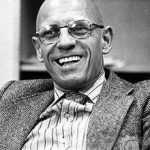 Don Quixoteis a negative of the Renaissance world; writing has dissolved their former alliance; similitudes have become deceptive and verge upon the visionary or madness. … The erudition that once read nature and books alike as parts of a single text has been relegated to the same category as its own chimeras: lodged in the yellowed pages of books, the signs of language no longer have any value apart from the slender fiction which they represent. The written word and things no longer resemble one another. And between them, Don Quixote wanders off on his own.
Don Quixoteis a negative of the Renaissance world; writing has dissolved their former alliance; similitudes have become deceptive and verge upon the visionary or madness. … The erudition that once read nature and books alike as parts of a single text has been relegated to the same category as its own chimeras: lodged in the yellowed pages of books, the signs of language no longer have any value apart from the slender fiction which they represent. The written word and things no longer resemble one another. And between them, Don Quixote wanders off on his own.
Michel Foucault, The Order of Things: An Archaeology of Human Sciences
 Nevertheless, every failure to cope with life situation must be laid, in the end, to a restriction of consciousness. Wars and temper tantrums are the makeshifts of ignorance; regrets are illuminations come too late. The whole sense of the ubiquitous myth of the hero’s passage is that it shall serve as a general pattern for men and women, wherever they may stand along the scale. Therefore it is formulated in the broadest terms. The individual has only to discover his own position with reference to this general human formula, and let it then assist him past his restricting walls. Who and where are his ogres? Those are the reflections of the unsolved enigmas of his own humanity. What are his ideals? Those are the symptoms of his grasp of life.
Nevertheless, every failure to cope with life situation must be laid, in the end, to a restriction of consciousness. Wars and temper tantrums are the makeshifts of ignorance; regrets are illuminations come too late. The whole sense of the ubiquitous myth of the hero’s passage is that it shall serve as a general pattern for men and women, wherever they may stand along the scale. Therefore it is formulated in the broadest terms. The individual has only to discover his own position with reference to this general human formula, and let it then assist him past his restricting walls. Who and where are his ogres? Those are the reflections of the unsolved enigmas of his own humanity. What are his ideals? Those are the symptoms of his grasp of life.
Joseph Campbell, Hero with A Thousand Faces
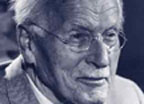 Every period has its bias, its particular prejudice, and its psychic malaise. An epoch is like an individual; it has its own limitations of conscious outlook and therefore requires a compensatory adjustment. This is effected by the collective unconscious when a poet or seer lends expressions to the unspoken desire of his times and shows the way, by word or deed, to its fulfillment, regardless whether this blind collective need results in good or evil, in the salvation of an epoch or its destruction.
Every period has its bias, its particular prejudice, and its psychic malaise. An epoch is like an individual; it has its own limitations of conscious outlook and therefore requires a compensatory adjustment. This is effected by the collective unconscious when a poet or seer lends expressions to the unspoken desire of his times and shows the way, by word or deed, to its fulfillment, regardless whether this blind collective need results in good or evil, in the salvation of an epoch or its destruction.
Carl Jung, The Spirit in Man, Art and Literature
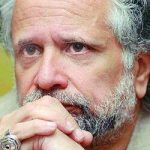 Nations, like narratives, lose their origins in the myths of time and only fully realize their horizons in the mind’s eye. Such an image of the nation–or narration–might seem impossibly romantic and excessively metaphorical, but it is from those traditions of political thought and literary language that the nation emerges as a powerful historical idea in the West. … A nation is a soul, a spiritual principle. Two things, which in truth are but one, constitute this soul or spiritual principle. One lies in the past, one in the present. One is the possession in common of a rich legacy of memories; the other is present-day consent, the desire to live together, the will to perpetuate the value of the heritage that one has received in an undivided form. Man does not improvise. The nation, like the individual, is the culmination of a long past of endeavors, sacrifice, and devotion. . . . A nation is therefore a large-scale solidarity, constituted by the feeling of the sacrifices that one has made in the past and of those that one is prepared to make in the future. It presupposes a past; it is summarized, however, in the present by a tangible fact, namely, consent, the clearly expressed desire to continue a common life. A nation’s existence is, if you will pardon the metaphor, a daily plebiscite, just as an individual’s existence is a perpetual affirmation of life.
Nations, like narratives, lose their origins in the myths of time and only fully realize their horizons in the mind’s eye. Such an image of the nation–or narration–might seem impossibly romantic and excessively metaphorical, but it is from those traditions of political thought and literary language that the nation emerges as a powerful historical idea in the West. … A nation is a soul, a spiritual principle. Two things, which in truth are but one, constitute this soul or spiritual principle. One lies in the past, one in the present. One is the possession in common of a rich legacy of memories; the other is present-day consent, the desire to live together, the will to perpetuate the value of the heritage that one has received in an undivided form. Man does not improvise. The nation, like the individual, is the culmination of a long past of endeavors, sacrifice, and devotion. . . . A nation is therefore a large-scale solidarity, constituted by the feeling of the sacrifices that one has made in the past and of those that one is prepared to make in the future. It presupposes a past; it is summarized, however, in the present by a tangible fact, namely, consent, the clearly expressed desire to continue a common life. A nation’s existence is, if you will pardon the metaphor, a daily plebiscite, just as an individual’s existence is a perpetual affirmation of life.
Homi Bhabha, Nation and Narration
 The relatively common denominator between the various aspects of Orientalism is the line separating Occident from Orient and this is less a fact of nature than it is a fact of human production, which I have called imaginative geography. This is, however, neither to say that the division between Orient and Occident is unchanging nor is it to say that it is simply fictional.
The relatively common denominator between the various aspects of Orientalism is the line separating Occident from Orient and this is less a fact of nature than it is a fact of human production, which I have called imaginative geography. This is, however, neither to say that the division between Orient and Occident is unchanging nor is it to say that it is simply fictional.
Edward Saïd, Orientalism Reconsidered
 The ubiquitous potential presence of a balanced, totalized, dimension of meaning may partially explain why a fully realized sense of the tragic does not materialize in Chinese narrative. …. But in each case the implicit understanding of the logical interrelation between these fictional characters’ particular situation and the overall structure of existential intelligibility serves to blunt the pity and fear the reader experiences as he witnesses their individual destinies. In other words, Chinese narrative is replete with individuals in tragic situations, but the secure inviolability of the underlying affirmation of existence in its totality precludes the possibility of the individual’s tragic fate taking on the proportions of a cosmic tragedy. Instead, the bitterness of the particular case of mortality ultimately settles back into ceaseless alternation of patterns of joy and sorrow, exhilaration and despair, which go to make up an essentially affirmative view of the universe of experience.
The ubiquitous potential presence of a balanced, totalized, dimension of meaning may partially explain why a fully realized sense of the tragic does not materialize in Chinese narrative. …. But in each case the implicit understanding of the logical interrelation between these fictional characters’ particular situation and the overall structure of existential intelligibility serves to blunt the pity and fear the reader experiences as he witnesses their individual destinies. In other words, Chinese narrative is replete with individuals in tragic situations, but the secure inviolability of the underlying affirmation of existence in its totality precludes the possibility of the individual’s tragic fate taking on the proportions of a cosmic tragedy. Instead, the bitterness of the particular case of mortality ultimately settles back into ceaseless alternation of patterns of joy and sorrow, exhilaration and despair, which go to make up an essentially affirmative view of the universe of experience.
Andrew Plaks, Chinese Narrative
 Cultural seismology–the attempt to record the shifts and displacements of sensibility that regularly occur in the history of art and literature and thought–habihually distinguishes three separate orders of magnitude. At one end of the scale are those tremors of fashion that seem to come and go in rhythm with the changing generations. To a second order of magnitude belong those larger displacements whose effects go deeper and last longer, forming those extended periods of style and sensibility which are usefully measured in centuries. This leaves a third category for those overwhelming dislocations, those cataclysmic upheavals of culture, those fundamental convulsions of the creative human spirit that seem to topple even the most solid and substantial of our beliefs and assumptions, leave great areas of the past in ruins or question an entire civilization or culture.
Cultural seismology–the attempt to record the shifts and displacements of sensibility that regularly occur in the history of art and literature and thought–habihually distinguishes three separate orders of magnitude. At one end of the scale are those tremors of fashion that seem to come and go in rhythm with the changing generations. To a second order of magnitude belong those larger displacements whose effects go deeper and last longer, forming those extended periods of style and sensibility which are usefully measured in centuries. This leaves a third category for those overwhelming dislocations, those cataclysmic upheavals of culture, those fundamental convulsions of the creative human spirit that seem to topple even the most solid and substantial of our beliefs and assumptions, leave great areas of the past in ruins or question an entire civilization or culture.
Malcolm Bradbury and James McFarlane, Modernism
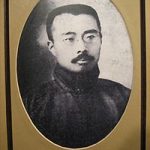 For instance, the Frenchman Maupassant’s Une vie is human literature about the animal passions of man; China’s Prayer Mat of Flesh, however, is a piece of non-human literature. The Russian Kuprin’s novel Jama is literature describing the lives of prostitutes, but China’s Nine-tailed Tortoise is non-human literature. The difference lies merely in the different attitudes conveyed by the work, one is dignified and one is profligate; one has aspirations for human life and therefore feels grief and anger in the face of inhuman life, whereas the other is complacent about human life, and the author even seems to derive a feeling of satisfaction from it, and in many cases to deal with his material in an attitude of amusement and provocation. In one simple sentence: the difference between human and non-human literature lies in the attitude that informs the writing; whether it affirms human life or inhuman life.
For instance, the Frenchman Maupassant’s Une vie is human literature about the animal passions of man; China’s Prayer Mat of Flesh, however, is a piece of non-human literature. The Russian Kuprin’s novel Jama is literature describing the lives of prostitutes, but China’s Nine-tailed Tortoise is non-human literature. The difference lies merely in the different attitudes conveyed by the work, one is dignified and one is profligate; one has aspirations for human life and therefore feels grief and anger in the face of inhuman life, whereas the other is complacent about human life, and the author even seems to derive a feeling of satisfaction from it, and in many cases to deal with his material in an attitude of amusement and provocation. In one simple sentence: the difference between human and non-human literature lies in the attitude that informs the writing; whether it affirms human life or inhuman life.
Zhou Zuoren, Humane Literature
 To understand a narrative is not merely to follow the unfolding of the story, it is also to recognize its construction in ‘storeys’, to project the horizontal concatenations of the narrative `thread’ on to an implicitly vertical axis; to read (to listen to) a narrative is not merely to move from one word to the next, it is also to move from one level to the next.”
To understand a narrative is not merely to follow the unfolding of the story, it is also to recognize its construction in ‘storeys’, to project the horizontal concatenations of the narrative `thread’ on to an implicitly vertical axis; to read (to listen to) a narrative is not merely to move from one word to the next, it is also to move from one level to the next.”
Roland Barthes, Image-Music-Text
 The problems of interpretation facing an intralingual critic are formidable enough: they become doubly so for the interlingual critic, since to the problems due to differences between historical periods are added those due to cultural and linguistic differences. The interlingual critic has to make a decision as to what basic attitude he should take toward such differences, and the decision will determine the kind of interpretation that he will offer. It is not an easy decision to make, for even within a single cultural and literary tradition there can be conflicting schools of hermeneutics. . . . With regard to the interpretation of Chinese literature, the critic has a similar set of attitudes to choose from: Sinocentrism, Eurocentrism, cultural relativism, cultural perspectivism and transculturism. I am avoiding the term “cultural chauvinism” or “ethnocentrism” so that the critic’s own cultural and ethnic identity need not be called into question.
The problems of interpretation facing an intralingual critic are formidable enough: they become doubly so for the interlingual critic, since to the problems due to differences between historical periods are added those due to cultural and linguistic differences. The interlingual critic has to make a decision as to what basic attitude he should take toward such differences, and the decision will determine the kind of interpretation that he will offer. It is not an easy decision to make, for even within a single cultural and literary tradition there can be conflicting schools of hermeneutics. . . . With regard to the interpretation of Chinese literature, the critic has a similar set of attitudes to choose from: Sinocentrism, Eurocentrism, cultural relativism, cultural perspectivism and transculturism. I am avoiding the term “cultural chauvinism” or “ethnocentrism” so that the critic’s own cultural and ethnic identity need not be called into question.
James J.Y. Liu, The Interlingual Critic
 Humanist criticism, which has as its object the quality of life as well as works of art, no longer has authority. … The triumph of modernism is the defeat of criticism. …The critical spirit is the spirit of resistance, and the ‘traditional’ art has the critical spirit built into it. It is precisely because modernism has evacuated the critical spirit from art that there is an urgent need for a virile humanist criticism. What now passes for criticism is what I would call a mimetic criticism, which links itself to any particular exacerbation of art.
Humanist criticism, which has as its object the quality of life as well as works of art, no longer has authority. … The triumph of modernism is the defeat of criticism. …The critical spirit is the spirit of resistance, and the ‘traditional’ art has the critical spirit built into it. It is precisely because modernism has evacuated the critical spirit from art that there is an urgent need for a virile humanist criticism. What now passes for criticism is what I would call a mimetic criticism, which links itself to any particular exacerbation of art.
Eugene Goodheart, The Failure of Criticism

